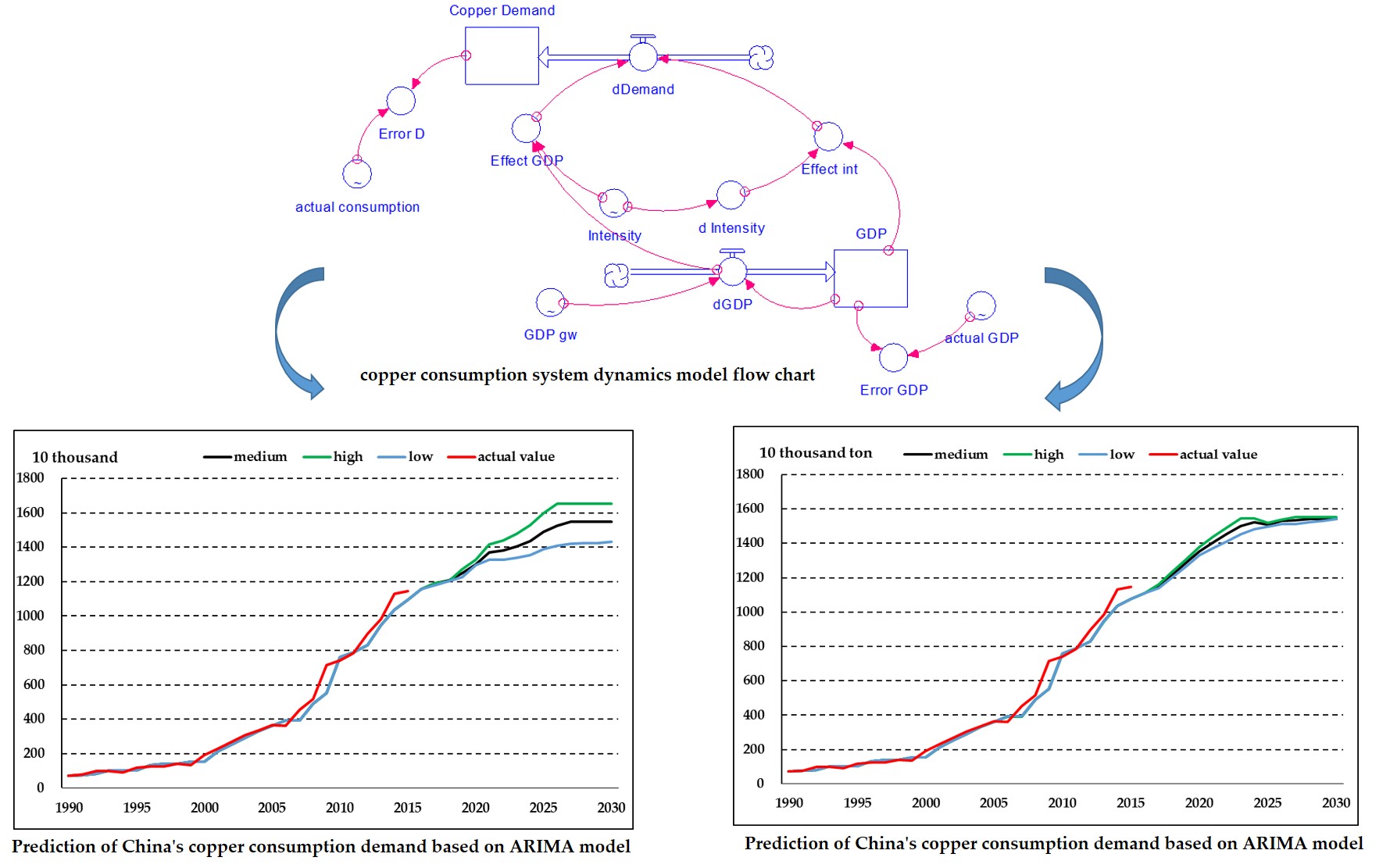Copper demand for a country's copper industry has a greater pull effect. China's copper consumption in 2015 has accounted for 50% of the world. The scientific forecast of China's copper demands trend is also an important basis for analyzing its future environmental impact. This paper assumes that China's economy will be developing high, medium and low scenarios, and forecasts economic and social indicators such as total GDP, population and per capita GDP in China from 2016 to 2030. Then, predicted the demand of copper resources in China from 2016 to 2030 by the combination of system dynamics model, vector autoregressive moving average model and inverted U-type empirical model. The results show that: (1) in 2020, 2025 and 2030, China's refined copper demand will be 13 Mt, 15 Mt and 15.5 Mt. (2) China's copper demand growth slowed down significantly from 2016-2030. (3) 2025-2030, China's copper resource demand is stable, into the platform of demand growth, the highest peak value in 2027 will be 15.5 Mt. (4) 2030 years later, China's copper resource demand will enter a slow decline.

